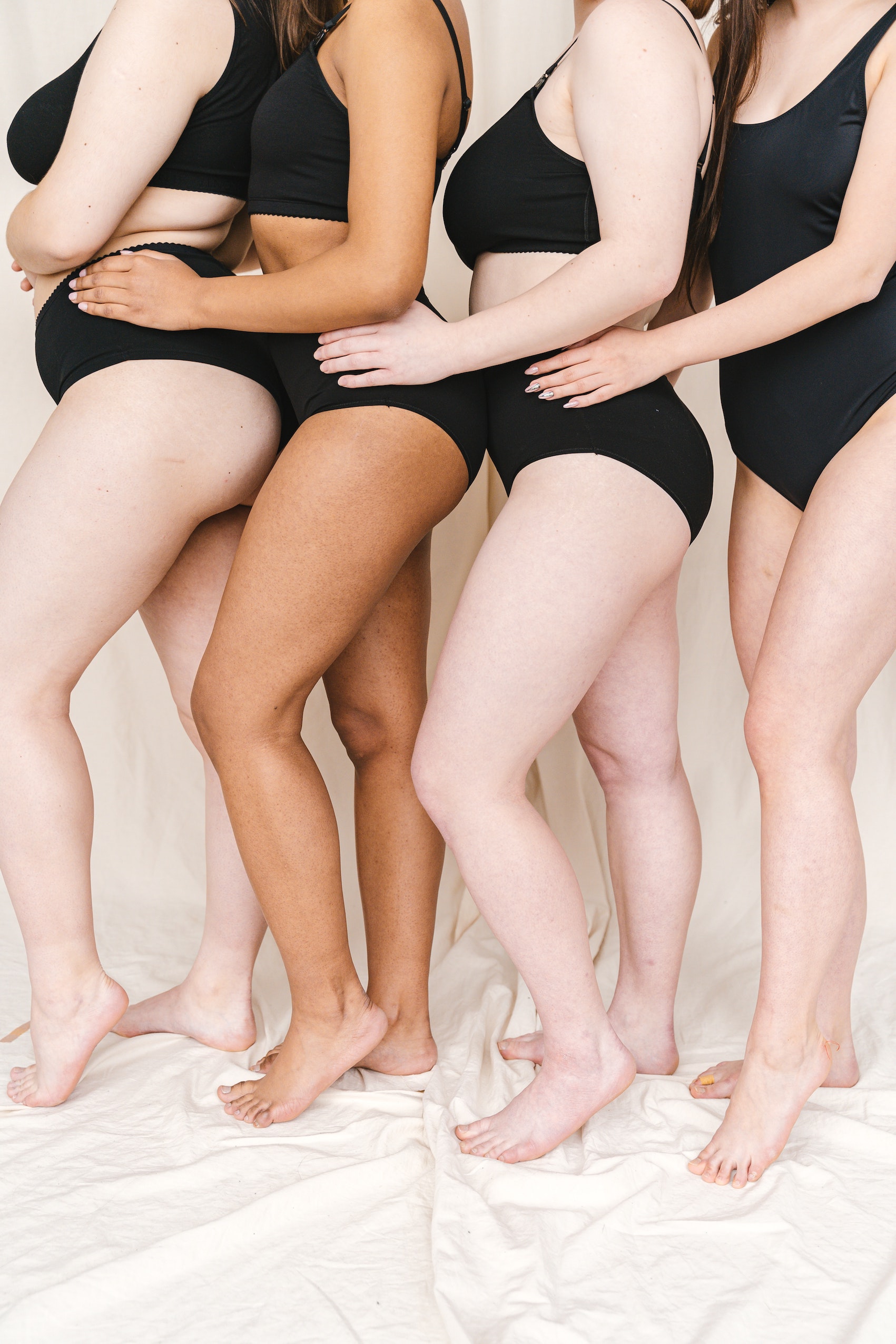Body shaming is a prevalent issue in our society that affects people of all ages, genders, and races. It can have a negative impact on a person’s mental and physical health, self-esteem, confidence, and overall well-being. In this blog post, we will delve into the repercussions of body shaming and how it affects individuals who experience it in the English language context. We will also touch on ways to combat this harmful practice both individually and as a community to promote body positivity and self-acceptance.


Cart is Empty!!


1. Negative Effects of Body Shaming
Body shaming can have a severe impact on both your physical and mental health. Experiencing negative comments about your body may lead to feelings of shame, insecurity, and self-doubt, which can escalate into more severe conditions such as anxiety, depression, and eating disorders.
If you’ve experienced body shaming, it’s essential to understand the negative effects it can have on your mental health. Feeling self-conscious and ashamed of your body can cause a distorted perception of yourself and lead to a negative body image. This can lead to low self-esteem, causing you to feel isolated and withdrawn from social situations.
Unfortunately, body shaming’s negative effects can last long-term, leading to additional, more severe mental health issues. If you’ve experienced body shaming, it’s crucial to seek support from loved ones or a mental health professional. They can help you work through your negative feelings, increase your self-esteem, and develop a healthy body image.
2. Mental Health Consequences of Body Shaming
Mental health consequences of body shaming can be devastating. Low self-esteem, anxiety, and depression are just a few of the mental health issues that can arise from body shaming. When someone criticizes your body, it can be difficult to feel good about yourself. The constant worry and self-consciousness can lead to negative self-image and body dysmorphic disorder, where you become obsessed with perceived flaws in your appearance.
Over time, the shame and anxiety caused by body shaming can develop into more serious mental illnesses. Eating disorders, depression, and anxiety are just a few of the conditions that can be triggered by body shaming. If you’re experiencing body shaming, it’s important to take care of your mental health. Talk to someone you trust, whether it’s a friend, family member, or therapist. Surround yourself with positive influences and focus on the things you love about yourself. Spend time doing activities that make you feel good, such as exercising or practicing self-care. Remember that you are more than your appearance and that you deserve to be treated with kindness and respect.
3. Body Shaming and Self-Image
Body shaming can drastically affect your self-image. When someone makes derogatory comments about your body, it can leave you feeling self-conscious and insecure. Over time, these negative comments can escalate into a body dysmorphic disorder, which can have devastating effects on your mental health. It’s crucial to remember that your self-image is not solely based on your physical appearance. You are a complex individual with unique qualities and personalities that make you who you are.
To combat body shaming and improve your self-image, it’s essential to focus on your strengths and achievements. Make a list of your positive qualities and the things you’ve accomplished that you’re proud of. Accept compliments and acknowledge them, don’t dismiss them. Surround yourself with individuals who uplift and positively reinforce your self-worth.
Additionally, invest time in self-care activities that improve your mental and physical health. Practice yoga, meditation, or any other stress-relief activity that helps you feel centered and balanced. Being mindful of your thought patterns can also help you identify any negative self-talk and work towards shifting it into a positive one. Remember to treat yourself with compassion and kindness, and remind yourself that you are beautiful and worthy, just the way you are.
4. Body Shaming and Eating Disorders
If you or someone you know is struggling with an eating disorder, it’s important to understand the link between body smoking and its impact on eating disorders. Negative comments about someone’s body can often lead to poor self-image, which can ultimately turn into an eating disorder. This is especially true for individuals who may already have a genetic or environmental predisposition to an eating disorder.
If you suspect that you or someone you know may be struggling with an eating disorder, it’s important to seek professional help as soon as possible. This can include speaking with a therapist or counselor who specializes in eating disorders, as well as reaching out to a medical professional who can help facilitate treatment.
Remember, the road to recovery from an eating disorder can be a long and challenging one, but it is also a journey that is well worth taking. With the right support, guidance, and resources, you can overcome body shaming and any associated negative self-image, and learn to love and accept yourself exactly as you are.


5. Link between Body Shaming and Anxiety
Have you ever felt anxious about your body image? If yes, then you are not alone. Body shaming can have a significant impact on our mental health, especially on our anxiety levels. Research shows that individuals who experience body shaming are at a higher risk of developing anxiety disorders. The constant criticism of our appearance can create feelings of shame, embarrassment and anxiety.
It is important to know that anxiety is a common response to body shaming. The constant scrutiny of our appearance can trigger anxious thoughts and cause us to worry excessively about our body. The fear of being judged by others can lead to social phobia, which can lead to further anxiety issues.
If you experience body shaming, it is essential to take steps to manage your anxiety levels. Seeking professional help from a licensed therapist can help you address your feelings and develop coping skills. Additionally, practicing self-care activities such as exercise, meditation, and yoga can also help reduce anxiety levels.
It is crucial to remember that your worth is not defined by your appearance. Body shaming is hurtful and unnecessary, and it is essential to learn to love and appreciate your body for what it is. Surround yourself with positive and supportive people who value you for who you are.
In conclusion, it is evident that body shaming can have a significant impact on our mental health. Anxiety is one of the serious consequences of body shaming, and it is important to address it. By seeking professional help, practicing self-care activities and surrounding yourself with positive and supportive people, you can overcome your anxiety and learn to love and appreciate your body.


6. Body Shaming and Self-Esteem
Body shaming can have a significant impact on your self-esteem. When someone criticizes your body or appearance, it can leave you feeling ashamed and inadequate. This can lead to a distorted perception of your body, causing you to doubt yourself and feel low in self-esteem. Negative comments about your body can make you feel insecure and unworthy, which can make it difficult to feel confident in yourself and your abilities.
To improve your self-esteem in the face of body shaming, it is important to focus on the parts of yourself that you love and appreciate. Try to build a positive body image by identifying your strengths and embracing your unique qualities. Surround yourself with positive influences, such as friends and family members who support and build you up, rather than tear you down. Remember that self-esteem is about your whole self, not just your body. Focus on the things that make you feel good about yourself, whether that is your intelligence, creativity, or kindness.
Ultimately, the key to overcoming body shaming and improving your self-esteem is to be kind to yourself. Don’t give in to negative thoughts or allow yourself to be dragged down by other people’s opinions. Embrace your unique qualities and know that you are deserving of love and respect, regardless of what anyone else may say. By practicing self-love and building a strong sense of self-worth, you can overcome the harmful effects of body shaming and live your life with confidence and positivity.
7. The Risks of Poor Body Image
The risks of a poor body image can affect your mental and physical health in many ways. Poor body image can lead to feelings of shame or anxiety, and can even cause depression and eating disorders. Negative body image can also set unrealistic expectations of how your body should look, which can often result in unhealthy eating behaviors and an increased risk of developing eating disorders. If left unchecked, a negative body image can have long-term effects on your physical health, such as chronic stress, weight gain, and even a weakened immune system.
To protect yourself and your well-being, it’s important to focus on self-care and body positivity. Practice self-love and acceptance, and prioritize healthy habits such as eating well, getting enough sleep, and moving your body in ways that feel good to you. by taking care of yourself, you can work towards building a healthier and more positive relationship with your body. Remember, your worth is not defined by your appearance, and you deserve to feel confident and happy in your own skin.
8. Long-Term Effects of Body Shaming
Long-term effects of body shaming can be severe and long-lasting. The physical, mental, and emotional consequences can carry over into adulthood, impacting relationships, self-confidence, and overall well-being.
If you’ve experienced body shaming, it’s important to understand that it doesn’t have to define you. However, it’s also crucial to acknowledge the potential long-term effects and take steps to address them.
One of the long-term effects of body shaming is the development of distorted perception around one’s body, which can lead to chronic self-doubt, low self-esteem, and a desire to isolate. This distorted perception can further contribute to poor mental health and lead to anxiety, depression, and even suicidal tendencies.
Another effect is the increased risk of developing an eating disorder. Adolescents who experience body shaming are at higher risk of developing disordered eating patterns, such as anorexia or bulimia, as they seek to control their body size and shape to meet societal expectations.
Additionally, long-term body shaming abilities can negatively impact an individual’s self-confidence, leading to a lack of trust in one’s own worth. This can limit opportunities, both personally and professionally, and lead to a lifetime of missed experiences due to fear and self-doubt.
Understanding and addressing the long-term effects of body shaming requires courage, support, and professional intervention. Speak up when body shaming is witnessed, and seek help from a trusted therapist or support group to overcome the negative impact of body shaming on your mental and emotional health. Remember, positive self-image and acceptance begin with you – believe in yourself and embrace your unique qualities.





